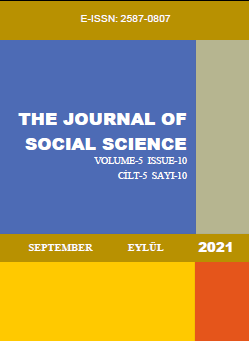CHINA’S ENCOUNTER WITH WEST IN THE 19TH CENTURY: POWER RELATIONS
CHINA’S ENCOUNTER WITH WEST IN THE 19TH CENTURY: POWER RELATIONS
Author(s): Oktay KÜÇÜKDEĞİRMENCİSubject(s): Diplomatic history, Military history, Political history, International relations/trade, 19th Century, Peace and Conflict Studies
Published by: Dicle Üniversitesi, Sivil Havacılık Yüksekokulu
Keywords: China; West; Opium War; Self-Strengthening Movement; Most-Favoured Nation Clause;
Summary/Abstract: This article aims to examine power relations between China and West in the 19th century, in particular, from the first Opium War (1839-1842) to Self-strengthening Movement (1864-1884) since when Europeans, for the first time, came to China with new technologies, armaments, and ideas, and told them what is good for Chinese, Chinese were bewildered because they did not know how to respond. China had lived under its sense of superiority as mandate of heaven with its neighbours for a long centuries. They had not seen people like westerners before. They were complacent with regards to foreign world, and did not keep up with contemporary world conditions. Thus, when they encountered superior power of westerners throughout the 19th century, they failed to response successfully, and started to lose everything they believed and had for centuries. In Chinese respond to West, two strategies were put forth, which one ise a sort of external balancing, but not via military alliance with another country, but through the concept of most favoured nation clause by inviting other western countries to China in order to use “one barbarian country to another barbarian country”. The other strategy China utilized is a kind of internal balancing by menas of self-strengthening movement.
Journal: The Journal of Social Science
- Issue Year: 5/2021
- Issue No: 10
- Page Range: 333-348
- Page Count: 16
- Language: English

